Twentieth anniversary ofEl español en el deporte (1997-2007)
On La Página del Idioma Español: Twentieth anniversary ofEl español en el deporte (1997-2007)
Jesús Castañón Rodríguez
The 18 June 1997 saw the birth of El español en el deporte (“Spanish in sport”), the sports section of La Página del Idioma Español (“The Spanish Language Page”), a space created on 16 April 1996 in Río de Janeiro (Brazil) by the Uruguayan journalist Ricardo Soca with the aim of contributing, from the internet, to the preservation, unity and purity of the language.
It arose at a time when an economic measure set out to eliminate the letter “ñ” from computer keyboards and which the Spanish cartoonist Juan Ballesta summed up with a quixotic landscape where computers stand in for windmills and receive the attack, lance at the ready, of Don Quixote mounted on an indomitable ñ. And it has collaborated in the transformation of the panorama of windmills/giants in this field for the promotion of the Spanish language and its cultural flow on the internet, thanks to a formula that facilitates access by the curious and by language scholars to the theory and practice of the language and a rich variety of resources.
The samba and its chorus
The sports section was defined on 28 June and it presented its first contribution on 17 July 1997. And its evolution progressed thanks to three meetings between the editor of the page and the section coordinator, between 1998 and 2001, in Río de Janeiro, Madrid and Valladolid.
Its working method was based on high formal thought and the freedom to surprise the reader with a reflection on the uses of journalistic language, the linguistic presence of sport in literature written in Spanish, glossaries of sports terms for non-specialists that could be consulted quickly online, links to digital publications with a sports theme, the presence of Spanish in high-level competition, humorous literature, the work of the great geniuses of graphic humour and the sporting profile of great figures of language and literature of all eras.
The spirit of the sports section has danced to a samba that has welcomed the different tones and rhythms of Latin American countries in the task of reflecting their imagination in the constant struggle to reach new goals in sport, their passionate experience and excited reporting. It has sung of the original and unusual aspects of information on sports language without renouncing its rigour, it has presented traditional resources and those provided by new technologies, it has reflected on the main features that make it special, it has distinguished levels of register according to whether sport is experienced as practice, an organised activity in associations or as mass entertainment and it has evaluated the difference between sports language and the standard use of the language with a respectful nod towards sports bodies.
Its flexible and varied structure, devised while taking into account contributions from America, has developed twelve lines of work:
1. The description of the current state of language in the field of sport and the culture it generates in Spanish.
2. The provision of lexical resources with basic terms.
3. Guidance on technical terms.
4. Equivalences in Spanish of foreign words and expressions and correspondences between various languages.
5. An explanation of the keys of the historical evolution of Spanish sports language at its levels of dissemination.
6. Samples from the literary level, with special attention to the production of literature with a sports theme by great Latin American writers.
7. Newsstand of sports publications categorised by countries.
8. Reviews of reference books for translation.
9. Graphic and literary humour with a sports theme.
10. Reviews of bestsellers.
11. Analyses of the sporting works of members of the Royal Spanish Academy.
12. Respect for creativity and American variants in the presentation of the sports report.
Production
The production of El español en el deporte, between 1997 and 2017, consists of various sections.
In first place, 45 articles between 1997 and 2017 that have dealt with glossaries of sports terminology, articles related with 12 sports (martial arts, athletics, basketball, handball, extreme sports, rural sports, beach sports, football, golf, tennis, triathlon and volleyball), the presence of Spanish in high level competition at the FIFA World Cup and the Olympic Games, the sports vision of three directors of the Royal Spanish Academy, linguistic studies, humourism, literature and journalistic language.
In second place, 6 reviews between 1998 and 2004 relative to 3 books, 1 event and 2 training activities.
In third place, 3 book jackets between 2004 and 2009, when in Río de Janeiro (Brazil) and Montevideo (Uruguay) “Mounted on an indomitable ñ…” accompanied the jackets of La fascinante historia de las palabras, Nuevas fascinantes historias de las palabras and La milenaria historia de las palabras.
Some repercussions
The constant work of these twenty years has been recognised in various spheres, of which 24 bibliographical references are included at the end, originating in Germany, Argentina, Austria, Brazil, Spain, France, the United States, Italy, Norway, Peru and Uruguay.
In first place, its contents have been considered as reference material in the Conference on co-operation in the field of terminology in Europe, held in Paris (France) in 1999, at the congress Il linguaggio dello sport, la comunicazione e la scuola, organised in Milan (Italy) in 2008, in the studies of The Innsbruck Football Research Group published in Tubingen (Germany) in 2008 and in Innsbruck (Austria) between 2010 and 2012, on the site Global Anglicism Database Network (GLAD) (Norway) in 2016 and they have been linked on the pages of the Ministries of Education of Argentina and Spain.
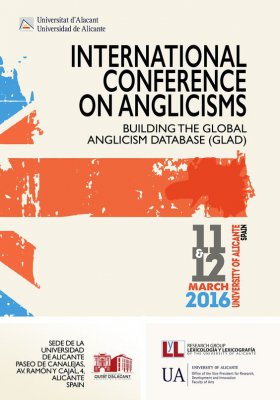
In second place, they have been the object of attention in higher education when preparing university research projects and as a reference to be consulted on PhD courses. And, furthermore, they have served as material for study and consultation in training activities and courses.
In third place, the site has been linked in education resources, the teaching of Spanish as a foreign language, translation and digital magazines of Argentina, Brazil, Canada, Spain, the United States, the Netherlands and Peru.
In fourth place, it has appeared on the web sites of football teams, professionals and bodies and was included among the 44 best sports sites in Spanish by the server Enlaweb in 2001.
In fifth place, its action influenced various books by its coordinator. Several of the articles published between 1997 and 2002 are included in the volumes Idioma y deporte, the prologue of which was provided by Ricardo Soca, and Tendencias actuales del idioma del deporte. References are also included in the introduction of Humor a patadas, in Diccionario terminológico del deporte and in Términos deportivos de origen extranjero.
In sixth place, in 1999, everything that had been developed on La Página del Idioma Español served to create Idiomaydeporte.com, the first specialised page on the internet on sports language and a pioneer in numerous actions and initiatives (reviews of research studies on the language of sport, gamification of contents with terminology games, the first guide to sports language with equivalences between American and Spanish sports terms….)
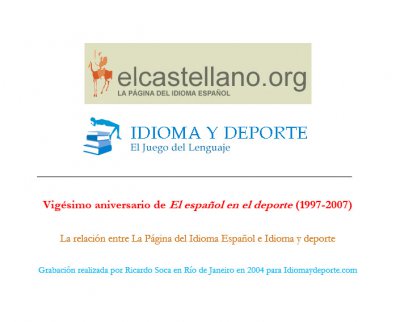
Epilogue
In these inconstant times when projects appear and disappear at breakneck speed, two uninterrupted decades on La Página del Idioma Español is a feat worthy of admiration.
Having been present during the first steps of the internet, creating innovative contents for the first specialised page on the diffusion of the Spanish language on the Web, has been an honour and, especially, has constituted an apprenticeship on addressing non-specialised audiences, summarising and providing solutions to be read quickly, which were later used in collaborations on the radio and in the printed press to foster dialogue and respect towards the American variants of the Spanish language.
El español en el deporte, as a space for freedom and contrast of voices and as an arena that favours dialogue and the free exchange of knowledge on both sides of the Atlantic, has been worthwhile and it has been a fascinating adventure. It currently lies, among other places, on the shelves of the libraries of the Olympic Studies Centre of Lausanne and the FIFA World Football Museum.
Biblipographical references
Articles in chronological order
1. “El fútbol y los libros de estilo”, La Página del Idioma Español, Río de Janeiro, 17 de julio de 1997.
2. “El deporte y el lenguaje. Bibliografía”, La Página del Idioma Español, Río de Janeiro, 17 de julio de 1997.
3. “Glosario de neologismos deportivos”, La Página del Idioma Español, Río de Janeiro, 17 de julio de 1997.
4. “El español en la prensa deportiva”, La Página del Idioma Español, Río de Janeiro, 16 de febrero de 1998.
5. “Glosario españolizado del tenis”, La Página del Idioma Español, Río de Janeiro, 25 de abril de 1998.
6. “El deporte moderno y Unamuno”, La Página del Idioma Español, Río de Janeiro, 2 de mayo de 1998.
7. “El triunfo en España del estilo americano de difusión deportiva”, La Página del Idioma Español, Río de Janeiro, 26 de mayo de 1998.
8. “Glosario de términos futbolísticos usados en América”, La Página del Idioma Español, Río de Janeiro, 26 de mayo de 1998.
9. “Glosario de términos españolizados de voleibol”, La Página del Idioma Español, Río de Janeiro, 26 de mayo de 1998.
10. “Glosario de términos de baloncesto”, La Página del Idioma Español, Río de Janeiro, 31 de mayo de 1998.
11. “Glosario de términos de golf”, La Página del Idioma Español, Río de Janeiro, 4 de julio de 1998.
12. “La lengua española en la Copa del Mundo de Fútbol”, La Página del Idioma Español, Río de Janeiro, 11 de noviembre de 1998.
13. “Glosario de balonmano”, La Página del Idioma Español, Río de Janeiro, 2 de marzo de 1999.
14. “Glosario del deporte extremo”, La Página del Idioma Español, Río de Janeiro, 2 de marzo de 1999.
15. “Glosario de atletismo”, La Página del Idioma Español, Río de Janeiro, 13 de mayo de 1999.
16. “Juegos agrolímpicos”, La Página del Idioma Español, Río de Janeiro, 29 de diciembre de 1999.
17. “El «Teatro irrepresentable» de Jardiel Poncela”, La Página del Idioma Español, Río de Janeiro, 1 de marzo de 2000.
18. «Antonio Mingote: el deporte de la educación», La Página del Idioma Español, Río de Janeiro, 7 de junio de 2000.
19. «La manifestación artística, cultural y educativa de los Juegos Olímpicos», La Página del Idioma Español, Río de Janeiro, 9 de septiembre de 2000.
20. «El deporte o la libre manifestación de la inteligencia», La Página del Idioma Español, Río de Janeiro, 9 de septiembre de 2000.
21. «La manifestación literaria de los Juegos Olímpicos», La Página del Idioma Español, Río de Janeiro, 9 de septiembre de 2000.
22. “Gambetas que encandilan las pupilas”, La Página del Idioma Español, Río de Janeiro, 21 de diciembre de 2000.
23. “Ideas lingüísticas de Rafael Lapesa sobre el idioma del deporte”, La Página del Idioma Español, Río de Janeiro, 27 de febrero de 2001.
24. “Los cinco años de La Página del Idioma Español”, La Página del Idioma Español, Río de Janeiro, 26 de abril de 2001.
25.“Lázaro Carreter y el idioma del deporte”, La Página del Idioma Español, Río de Janeiro, 3 de octubre de 2001.
26. “Manuel Alvar y la múltiple realidad del idioma del deporte”, La Página del Idioma Español, Río de Janeiro, 3 de diciembre de 2001.
27. “El triunfo en la Copa del Mundo: la fiesta de las palabras”, La Página del Idioma Español, Río de Janeiro, 1 de junio de 2002.
28. “Palabras para enamorar la pelota”, La Página del Idioma Español, Río de Janeiro, 11 de junio de 2002.
29. “El triunfo en la Copa del Mundo: palabras para enamorar la pelota (II)”, La Página del Idioma Español, Río de Janeiro, 17 de junio de 2002.
30. “La luna de cuero en el sol naciente”, La Página del Idioma Español, Río de Janeiro, 25 de junio de 2002.
31. “La luna llena del arte popular”, La Página del Idioma Español, Río de Janeiro, 11 de julio de 2002.
32. “Camilo José Cela y la vitalidad del deporte”, La Página del Idioma Español, Río de Janeiro, 2 de enero de 2003.
33. “El deporte en la vida de cuatro Premios Nobel de Literatura”, La Página del Idioma Español, Río de Janeiro, 23 de abril de 2003.
34. “La melodía del atardecer”, La Página del Idioma Español, Río de Janeiro, 18 de abril de 2004.
35. “Términos deportivos para el siglo XXI”, La Página del Idioma Español, Montevideo, 17 de abril de 2007.
36. “El realismo fantástico”, La Página del Idioma Español, Montevideo, 3 de julio de 2007.
37. “Acua, bi, du, cuadri, tri en los deportes”, La Página del Idioma Español, Montevideo, 10 de septiembre de 2007.
38. “Rutas del idioma español en el lenguaje periodístico del deporte”, La Página del Idioma Español, Montevideo, 13 de noviembre de 2007.
39. “Los vocablos de los deportes de playa”, La Página del Idioma Español, Montevideo, 2 de mayo de 2008.
40. “Poetas de peso pesado y Don Quijote en BTT”, La Página del Idioma Español, Montevideo, 29 de junio de 2008. “Las palabras en los Juegos Olímpicos”, La Página del Idioma Español, Montevideo, 2 de septiembre de 2008.
41. “Los nombres de las artes marciales”, La Página del Idioma Español, Montevideo, 25 de agosto de 2009.
42. “La dimensión deportiva de Miguel de Cervantes”, La Página del Idioma Español, Montevideo, 1 de marzo de 2010.
43. “Trampantojos deportivos de Ramón Gómez de la Serna”, La Página del Idioma Español, Montevideo, 22 de abril de 2012.
44. “Cortázar: juego y responsabilidad ante el destino”, La Página del Idioma Español, Montevideo, 8 de enero de 2014.
45. “El Premio Cervantes y el deporte”, La Página del Idioma Español, Montevideo, 8 de enero de 2017.
Reviews in chronological order
1. “Corrección de textos en prensa escrita”, La Página del Idioma Español, Río de Janeiro, 14 de noviembre de 1998.
2. “Una lengua para un milenio”, La Página del Idioma Español, Río de Janeiro, 14 de noviembre de 1998.
3. “Encuentro sobre el español en los medios de comunicación”, La Página del Idioma Español, Río de Janeiro, 15 de mayo de 2002.
4. “Un glosario olímpico multilingüe”, La Página del Idioma Español, Río de Janeiro, 2 de marzo de 1999.
5. “Dándole a la lengua”, La Página del Idioma Español, Río de Janeiro, 31 de octubre de 2003.
6. “El nuevo libro de Álex Grijelmo”, La Página del Idioma Español, Río de Janeiro, 18 de abril de 2004.

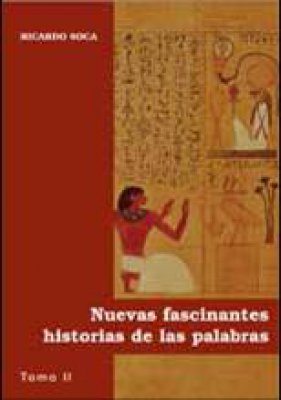
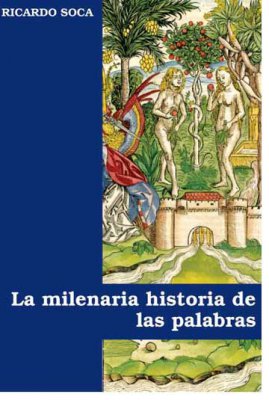
Covers of books
1. “A lomos de una indómita eñe…”, en SOCA, Ricardo: La fascinante historia de las palabras. Río de Janeiro (Brasil): Asociación Cultural Antonio de Nebrija, 2004.
2. “A lomos de una indómita eñe…”, en SOCA, Ricardo: Nuevas fascinantes historias de las palabras. Montevideo (Uruguay): Asociación Cultural Antonio de Nebrija, 2006.
3. “A lomos de una indómita eñe…”, en SOCA, Ricardo: La milenaria historia de las palabras. Montevideo (Uruguay): Asociación Cultural Antonio de Nebrija, 2009.
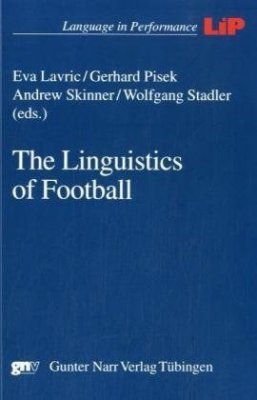

Other references
1. “El Diccionario terminológico del deporte”, La Página del Idioma Español, Río de Janeiro, 23 de junio de 2005.
3. “Idioma y deporte. La Página del lingüista Jesús Castañón”, La Página del Idioma Español, Río de Janeiro, 10 de febrero de 2000.
3. Las novedades de La Página del Idioma Español”, Noticias Intercom, Madrid, 8 de julio de 1997.
4. “Nota de la Redacción”, Apuntes…, volumen 6-número 1, Nueva York, invierno de 1998, en La Página del Idioma Español, Río de Janeiro, 21 de mayo de 1998.
5. BIBLIOTECA NACIONAL DE MAESTROS, «Sitios interesantes en Internet», Ministerio de Cultura y Educación, Buenos Aires, 2001.
6. CASTAÑÓN RODRÍGUEZ, Jesús, “El deporte en una página de referencia”, Idioma y deporte número 16, Valladolid, 15 de marzo de 2001.
7. EMBAJADA DE BRASIL EN ESTADOS UNIDOS, “Diccionarios especializados y glosarios en varios idiomas”, La Página del Idioma Español, Río de Janeiro, 1 de marzo de 1999.
8. ENLACES JORBÓN, “La Página del Idioma Español, Deportes”, Spanish Language Resources-Jorbón, Nueva York, diciembre de 2000.
9. GIORGIANNI, Erika y Eva LAVRIC, The Football and Language Bibliography Online, Innsbruck, Universidad de Innsbruck, 7 de agosto de 2012.
10. GLOBAL ANGLICISM DATABASE NETWORK (GLAD), “Publications. List of publications on Anglicisms in the world»s languages”, Gladnetwork.org, NHH Norwegian School Of Economics, Bergen, 15 de noviembre de 2016.
11. HERNÁN GÓMEZ-PRIETO, Beatriz (Ed.), Il Linguaggio dello Sport, la Comunicazione e la Scuola. Milán: Edizioni Universitarie de Lettere Economia Diritto, 2009.
12. JUNCAL, Julio, “La Página del Idioma Español, Deportes”, Translation-related Web Pages, Nueva York, 6 de noviembre de 1998.
13. LABORATÓRIO DE BIBLIOTECA DIGITAL, «Diccionários virtuais. Esportes», Laboratorio de Biblioteca Digital, Río de Janeiro, diciembre de 1999.
14. LAVRIC, Eva, Gerhard PISEK, Andrew SKINNER y Wolfgang STADLER (Eds.), The Linguistics of Football. Tubingen, Gunter Narr Verlag Tubingen, 2008.
15. MENÉNDEZ, Carmen, “Castañón, en el podio mundial de especialistas del lenguaje deportivo”, La Página del Idioma Español, Montevideo, 18 de mayo de 2014.
16. PIÑOL, Mar Cruz, “Recursos en Internet para la elaboración de actividades”, Carabela, 50, Barcelona, octubre de 2001.
17. RED CIENTÍFICA PERUANA, «La Página del Idioma Español, Deportes», Lima, diciembre de 2000.
18. SADOWSKY, Scott, “La Página del Idioma Español, Deportes. Entertainment, Recreation, Sports”, Spanish-English Translation, Baltimore, diciembre de 2000.
19. SCHWARZ, Erika, «Sports terminology: experiences, needs and proposal of actions», Conference on co-operation in the field of terminology in Europe, París, 17, 18 y 19 de mayo de 1999.
20. SOCA, Ricardo, «La Página del Idioma Español: doce años de aventura en Internet», Donde dice… número 11, Madrid, 2008, págs. 14-15.
21. SOCA, Ricardo, «La Página del Idioma Español: doce años de aventura en Internet», La Página del Idioma Español, Montevideo, 2 de mayo de 2008.
22. SOCA, Ricardo, “El primer año de Idioma y deporte”, Idioma y deporte, Valladolid, 15 de noviembre de 2000.
23. SOCA, Ricardo, “La Página del Idioma Español”, Espéculo, Universidad Complutense de Madrid, 20 de marzo de 2000.
24. VALDANO, Jorge, «Conexiones«, La zona Valdano, Córdoba, 24 de noviembre de 2000.

